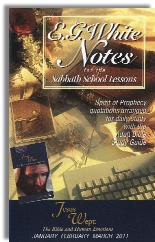|
||||||||||||||
Commentary on "Resilience"
Day 5: Wednesday, February 16, 2011 - Esther's Days of Stress
I recently read the book of Esther and it is a fascinating story of deception, hunger for power and ultimate deliverance. Although the Lord is not mentioned in the entire book of Esther it is quite obvious that, the Lord was watching over her and the Holy Spirit was with her.
There are a couple of background facts that shape this story. First, Mordecai and Esther remained in the land of Persia after God commanded israel to return to their land. The story of Esther occurs after King Cyrus facilitated Israel's return to Judea and their rebuilding the wall and the temple. When God sent Israel back home after their seventy years of Babylonian captivity, not all of Israel obeyed Him. Many had become comfortable in Babylon, and they refused to return. Mordecai and Esther were in Persia because their family had been among the disobedient who refused to return to Judea--along with all the other Israelites threatened by Haman's wiles. Those is Judea were not under the threat of annihilation by the Persian king.
Second, through Mordecai and Esther God completed the aborted work of King Saul five hundred years before when he failed to kill Agag, the king of the Amalekites. The following quote from The One Year Book of Christian History by E. Michael and Sharon Rusten, p. 354-55, tells the story:
The key to understanding this confrontation [between Esther and Haman] can be found in the name of Haman's father, Hammedatha the Agaite (Esther 3:1). Haman's name indicates that he and his father descended from Aga, the king of Amalek (1 Samuel 15:20). Thus, Haman himself could be considered an Amalekite. the Amalekites had been the first nation to attack Israel after its exodus from Egypt, and as a result, God had declared, "I will blot out every trace of Amalek from under heaven" (Exodus 17:14). Later God commanded Israel, "Never foret what the Amalekites did to you as you came from Egypt….Therefore, when the Lord your God has given you rest from all your enemies in the land he is giving you as a special possession, you are to destroy the Amalekites and erase their memory from under heaven. Never forget this!" (Deuteronomy 25:17), 19) Years later Saul, the first king of Israel, disobeyed God and spared Agag, king of the Amalekites, rather than killing him as God had commanded. Becauseof this disobedience, God rejected Saul as king (1 Samuel 15; cr. 30:1-18).
Mordecai is described as a descendant of Kish (Esther 2:5) who was the father of Saul (1 Samuel 9:1-2). And now, five hundred years after King Saul, Mordecai,Saul's descendant, continued to battle the Amalekites.
Mordecai persuaded his cousin Queen Esther to go uninvited to the court of King Xerxes at risk of her life to petition him to spare her people, the Jews, from Haman's decree. She found favor with the king, and he granted her an audience. The king listened to her petition and agreed to grant it; however, since a Persian law could not be revoked, he had to issue anyther decree. On June 25, 474 BC, King Xerxes issued a decree granting authority to the Jews to defend themselves against their enemies when the attack mandated by his first decree commenced (Esther 4:1-8: 16).
The book of Esther thus describes the final chapter in God's holy war on the Amalekites.
Haman was hanged on the gallows he had prepared for Mordecai (Esther 7:1-10), and Mordecai replaced him as prime minister (Esther 8:2, 15). The following year when the Jews were attacked, they successfully defended themselves, killing seventy-five thousand of their enemies, including all the sons of Haman (Esther 9:1-17). God's command to exterminate the Amalekites (1 Samuel 15:2-3) was finally fulfilled.
Yes, Esther was under great stress—but her resilience came from the Lord God who used her obedience to defend her people before a pagan king—her own husband. God completed what He had begun centuries before, and He carried out His commands to Saul to exterminate Agag through Agag's and Saul's descendants. God is indeed sovereign over everything, even over evil and disobedience. When someone like Esther or Mordecai chooses to trust God when He opens a door for them to speak truth, He Himself gives strength and resilience to His trusting servant.
Copyright 2011 BibleStudiesForAdventists.com. All rights reserved. Revised February 11, 2011. This website is published by Life Assurance Ministries, Glendale, Arizona, USA, the publisher of Proclamation! Magazine. Contact email: BibleStudiesForAdventists@gmail.com.
The Sabbath School Bible Study Guide and the corresponding E.G. White Notes are published by Pacific Press Publishing Association, which is owned and operated by the Seventh-day Adventist church. The current quarter's editions are pictured above.
Official Adventist Resources
Standard Edition Study Guide Week 8
Teacher's Edition Study Guide Week 8


